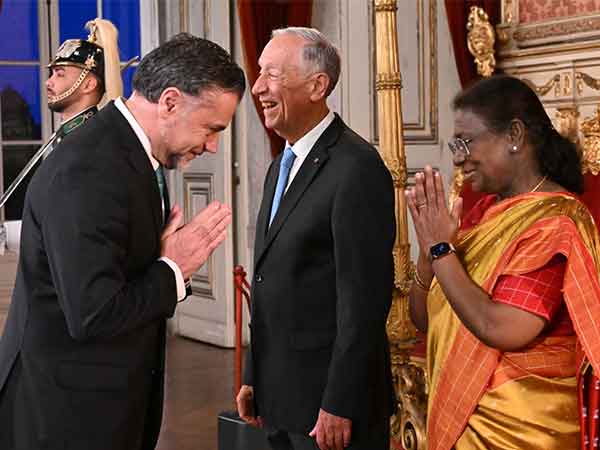World stands at 'inflection point' in history, we are not seeking a new Cold War, says Biden at UNGA
Sep 21, 2021

By Reena Bhardwaj
New York [US], September 21 : US President Joe Biden delivered his debut speech to delegates at the United Nations General Assembly (UNGA) on Tuesday morning, calling the next 10 years a "decisive decade for our world" and declaring the world stands at an "inflection point in history".
He said the way the global community responds to pressing challenges like the climate crisis and the COVID-19 pandemic will "reverberate for generations yet to come."
Biden's address included an array of issues such as COVID-19, climate change, US withdrawal from Afghanistan, terrorism, "competing vigorously" and supporting allies.
Speaking at the UN's annual gathering of world leaders in New York City, Biden tried to convince a global audience that "America is back," though some allies say he has not kept to his promises of strengthening the United States' traditional alliances.
President Biden called for a "new era" of global unity against the coronavirus, emerging technological threats and the expanding influence of autocratic nations such as China and Russia.
"No matter how challenging or how complex the problems we're going to face, government by and for the people is still the best way to deliver for all of our people," he said, insisting that the United States and its Western allies would remain vital partners.
US President told the United Nations General Assembly that the United States does not seek a "new Cold War," in a reference to relations with China and the recent comment by UN Secretary-General Antonio Guterres who warned of a potential new Cold War.
"The United States is ready to work with any nation that steps up and pursues peaceful resolution to shared challenges even if we have an intense disagreement in other areas," he told world leaders in New York.
Biden's UN speech centred on the proposition that the US is closing the chapter on 20 years of war and opening a chapter of intensive diplomacy by rallying allies and partners and institutions to deal with the major challenges.
Biden said the world faced a choice between the democratic values espoused by the West and the disregard for them by China and other authoritarian governments.
The president emphasized in his address that many of the challenges the world faces "cannot be solved or even addressed with the force of arms." "Bombs and bullets cannot defend against COVID-19 or its future variants," the President added.
Biden emphasized the importance of upholding human rights, wherever human suffering may be and standing up to authoritarianism.
"I am not agnostic about the future we want for the world," he said.
"The future will belong to those who embrace human dignity, not trample it. The future will belong to those who unleash the potential of their people, not those who stifle it. The future will belong to those who give their people the ability to breathe free, not those who seek to suffocate their people with an iron hand. Authoritarianism, the authoritarians of the world, may seek to proclaim the end of the age of democracy. But they're wrong. The truth is, the democratic world is everywhere."
Biden will keep his stay in New York brief because of COVID-related concerns. He plans to meet with Australian Prime Minister Scott Morrison in New York and then return to the White House for a bilateral meeting with British Prime Minister Boris Johnson.
On Wednesday, the President will host a virtual COVID Summit, during which he will ask participants to step up their commitments to provide COVID-19 vaccines and address the oxygen crisis, according to the White House.
He will also participate in bilateral meetings with Indian Prime Minister Narendra Modi and Japanese Prime Minister Suga Yoshihide at the White House on Friday, and host an in-person summit with the prime ministers of Australia, India and Japan.


















